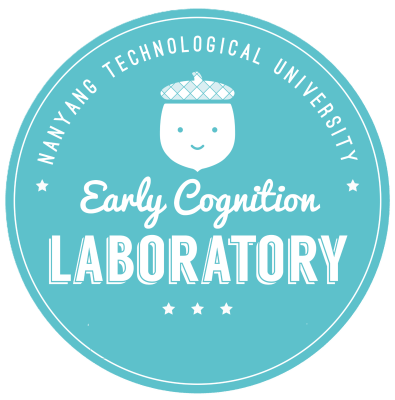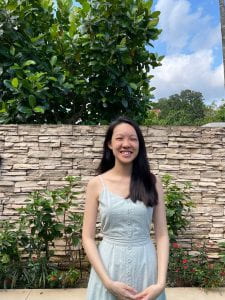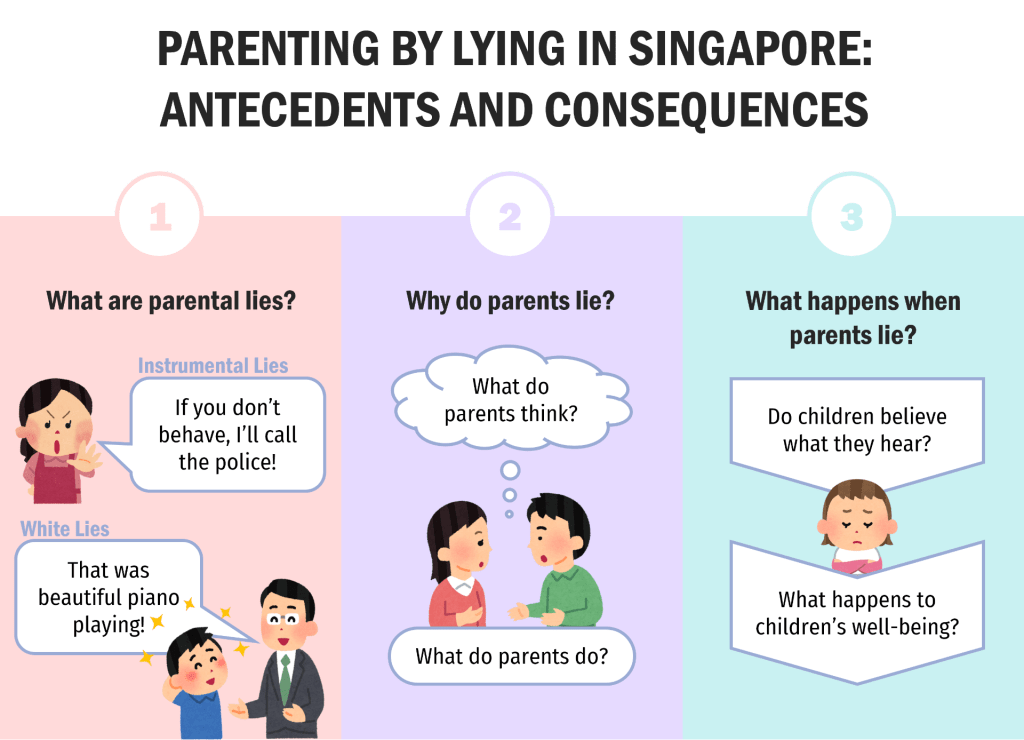This academic year, as part of the URECA program, 6 undergraduate students joined the Early Cognition Lab to embark on their independent research project. We had an amazing time exploring a range of research topics, such as parental disciplinary practices and parental dominance in parent-child conversation. We are thrilled to congratulate 4 of our students, Jerron, La-Mia, Kai, and Myat, for winning at the URECA poster competition. Kudos to their outstanding accomplishment! We spoke to them about their URECA journey.

What was your project about?
La-Mia: My URECA project was on whether child gender could influence parent’s conversational dominance. I coded parent-child conversational transcripts from a picture-book reading task, for parent’s total number of words in proportion to the child’s total, mean length of turns speaking in terms of the number of words spoken each turn, and the number of wh-question’s parents asked their child (questions using wh-words to elicit input e.g., what, where, why, when, and how). I compared each of these dependent variables by child gender, to see if gender had an influence on parent’s conversational dominance. From this project, I hoped to find more insight into when gender patterns of conversing may begin to develop during childhood.
Kai: My URECA project looked into the long-term effects of childhood neglect experience on negative parenting practices. Specifically, I was interested to find out how specific types of neglect could be associated with coercive forms of parenting, such as verbal hostility and physical coercion!
Jerron: My URECA project was about how parental physical discipline related to child anxiety. I decided to focus on physical discipline as it is highly prevalent in Singapore society, yet there has been very little research done on how it affects Singaporean children. I was driven to investigate its relationship with different dimensions of anxiety as we still do not have a clear picture of how physical discipline causes anxiety, and also due to the rising rates of mental illness in Singapore.
Myat: My project explored the trajectories of parenting practices through early and middle childhood. We know intuitively, and perhaps anecdotally, that how our parents parented and disciplined us changed as we grow older. However, there is little empirical research exploring such changes. Even when it is explored, research was often limited to physical discipline. In addition, most previous research focused on mothers and a Western population. Thus, I also wanted to explore whether the trajectories of parenting practices differed between Singaporean mothers and fathers.
Why did you choose to do a URECA Project?
Myat: In the previous summer, I had the opportunity to work in the Early Cognition Lab. Through doing literature reviews, participating in Lab meetings, doing data cleaning and helping in data collection, I was exposed to various steps in the process of doing a research project. This experience not only piqued my interest in the research process, but also furthered my interest in early development, especially in the outcomes of discipline practices. I also wanted explore how the theories and methods I learnt in class could be applied in research, hence, I took on a URECA project.
Jerron: Before I embarked on the URECA Project, I was already certain that I wanted to pursue a career in Clinical Psychology / mental health. However, I was uncertain about the age groups that I would be comfortable working with or specializing in. After taking Prof Peipei’s course in developmental psychology, I gained a newfound interest in how the environments children grow up in can affect their development – which led me to apply for a project at the Early Cognition Lab to experience being involved in child research.
What was your experience during the course of this project?
Kai: It was a very positive experience! I learnt a lot about the research process, and it certainly gave me the foundation to pursue the other projects that I have since taken up. Furthermore, as I had been studying how early years’ experience could affect people, it made me more appreciative and comfortable with the domain of developmental psychology. Additionally, I had a lot of support and encouragement from my supervisor, other lab members, and fellow URECA students.
Myat: I would say that embarking on this project has been really exciting. The project gave me the opportunity to apply what I learn in class to real data, and even explore beyond what I have learnt. Performing statistical analysis on the data and interpreting the results was particularly interesting for me as I could apply the methods I learnt in class but also explore new statistical methods. There were also many times that I felt lost or unsure about certain parts of my project, however, my supervisor, Mioko, and everyone in the lab was there to give great advice and share their thoughts. The process of receiving and giving feedback gave me the opportunity to improve on my project.
What was your biggest takeaway from pursuing the URECA project?
Jerron: My biggest takeaway from URECA would be that spending time and effort in staying organised and consistent is worth it! Throughout the course of my project, I’ve read numerous research papers, generated many statistical outputs and have created many drafts of posters/reports/findings, which has been a little problematic for me when I’ve had to review the progress of my project. For example, I’ve had trouble finding the studies that I had intended to reference in my report, and had wasted loads of time trying to identify which of my statistical outputs was the most up to date. I recommend to anyone that takes URECA that you clearly label and sort all the files you use for research, and to have a detailed and organised reading list of all the relevant papers that you have found, it will save you a LOT of time.
La-Mia: My biggest takeaway from pursuing the URECA project is to always be an eager learner, and to love learning. Having an open mind and proactively seeking feedback will allow you to grow as a student! It’s important to explore different interests throughout university, such as the career pathways your major can offer (e.g., academic research). It will help to attract more fruitful opportunities!




















